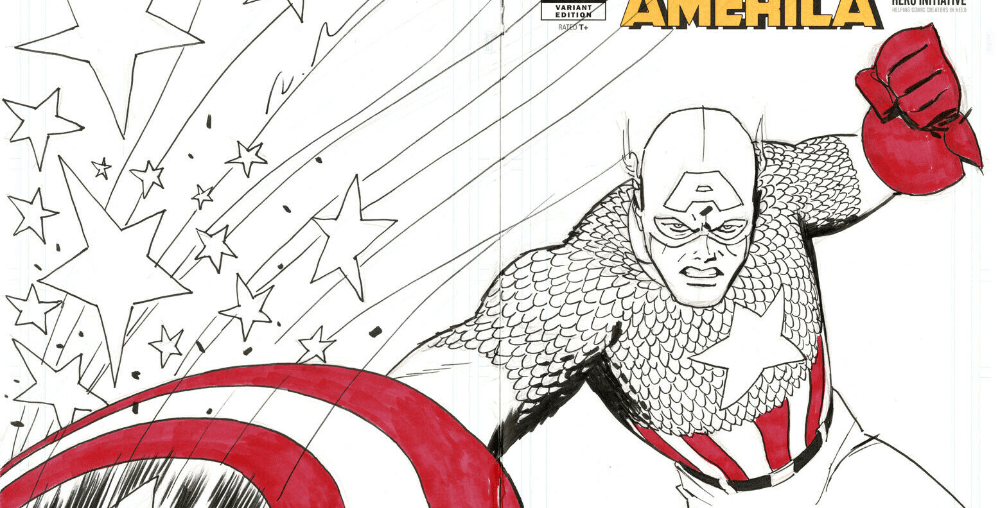“A hero is brave in deeds as well as words.”
Aesop
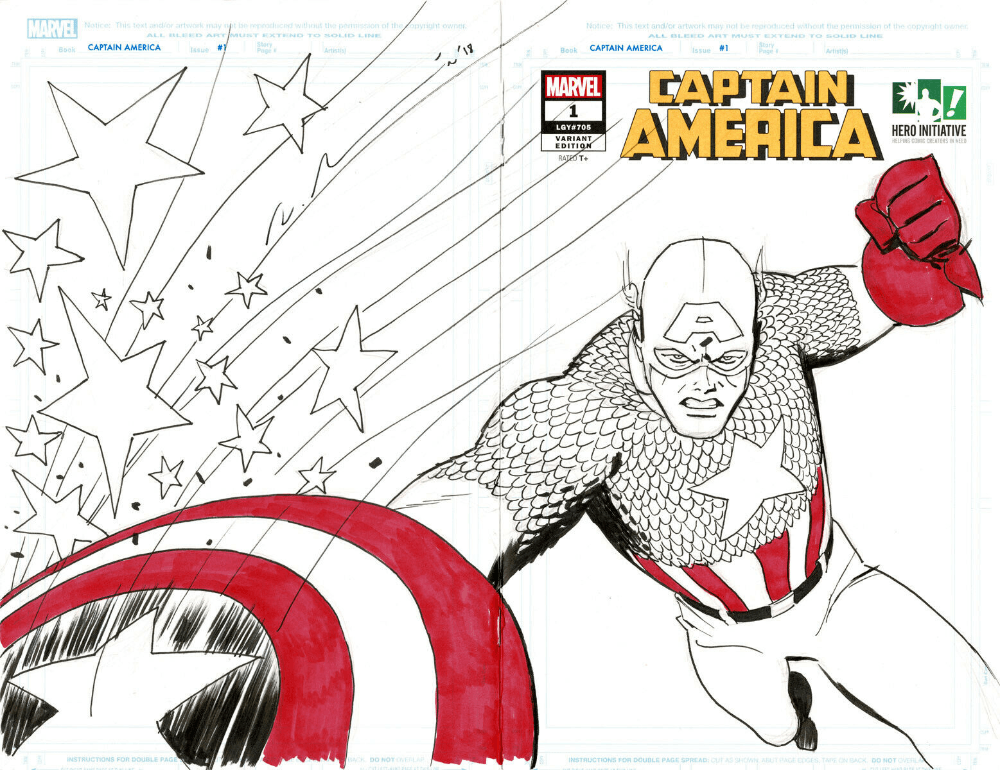
There has been a lot of talk about heroes lately in the media. A hero is defined as a real person or a main fictional character who, in the face of danger, combats adversity through feats of ingenuity, courage, or strength. Another definition reads that ” A hero is someone who puts others before himself or herself. A hero has good moral ethics and is someone who does things for the sake of being good, and not just a means to an end, or a reward for good deeds, but it is someone who does good for the sake of doing good.”
I have been interviewing heroes for almost a decade and I couldn’t agree more that real heroes put others before themselves and do good because it is the right thing to do. Heroes are not just cartoon characters but in some cases where life imitates art, you can find a real-life hero who supports those that create our modern-day Super Heroes. That is exactly who I found when I spoke with Jim McLauchlin, the founder of The Hero Initiative. A true Clark Kent who hides in plain sight to help all who needs him.

Charity Matters: Tell us a little about what Hero Initiative does?
Jim McLauchlin: I usually tell people that Hero Initiative is an organization that helps comic book creators with medical and financial needs. You all know how it is with every new movie out there. It’s a billion dollars worth of worldwide box office. Right? That guy who was drawing Batman back in 1974, he doesn’t get anything from that work, and many of these people have now created what is a huge part of our cultural landscape. It’s everywhere, but the people who actually sat down and were the artisans and the craftspeople who did it, very often are not sharing in the sort of massive financial rewards. So, Hero Initiative helps them out when they have medical and financial needs.
Charity Matters: What was the moment you knew you needed to act and start Hero Initiative?
Jim McLauchlin: You know, I’ve kind of got a two-part story. I used to be a sportswriter, and when I was a sportswriter, Major League Baseball had an organization called BAT, the Baseball Assistance Team, and it was very much a parallel kind of organization to what Hero Initiative is now. Major League Baseball is smart enough to realize that back in the 70s, before free agency, most baseball players had to have a job during the winter to make ends meet. So, when I was a sportswriter, I definitely liked and supported BAT a lot. Later, I got into the comics business and I looked around and I asked a number of people, where’s this organization for comics creators? Everybody said, “Well, we don’t have one. ” And I’m like, well, why not? And everybody just said because nobody’s ever done one.
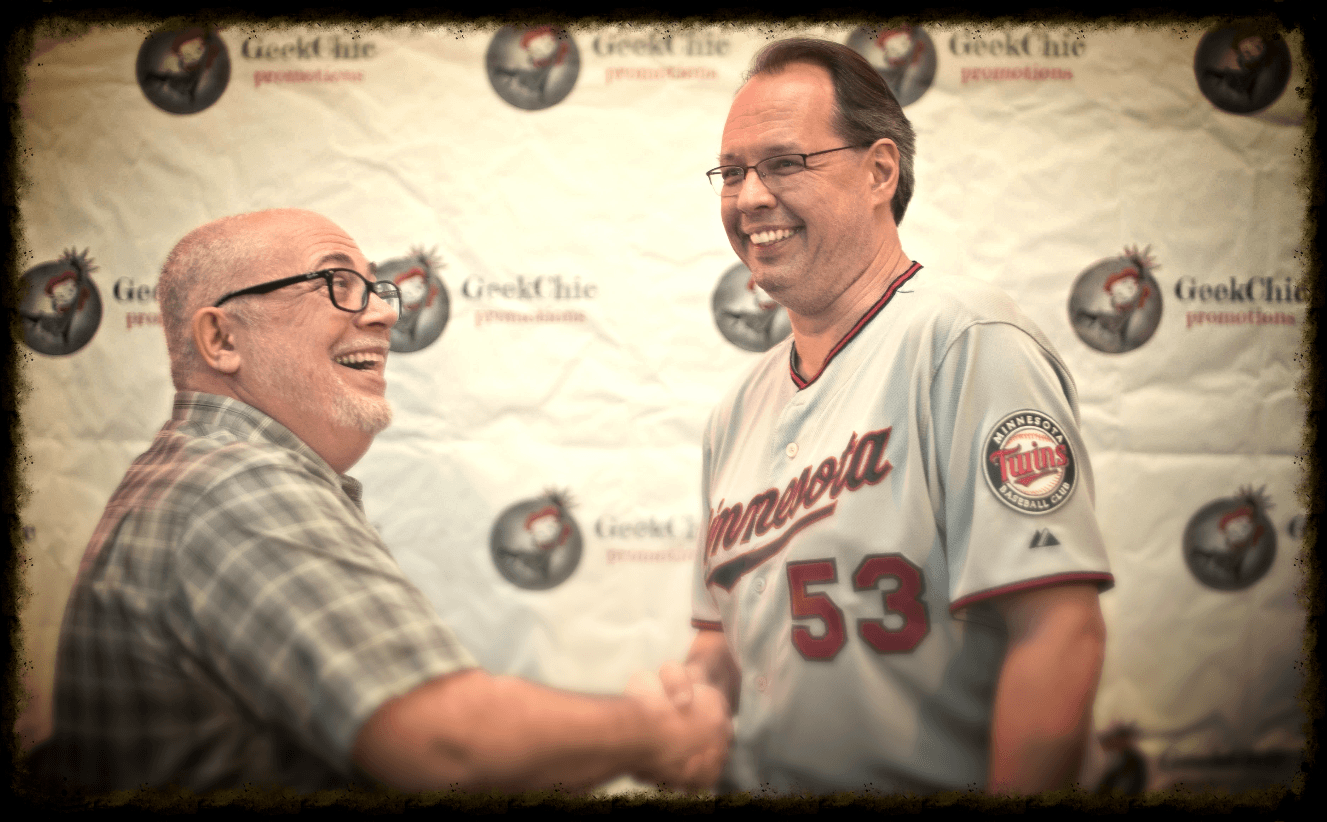
So one day I was having a discussion with a guy by the name of Mark Alessi. . We would talk comics all the time, and I brought up the Baseball Assistance Team and I mentioned, there really should be something like this in comics. He said, “Well, you know, why don’t you do it? “I’m like, I don’t even know where the hell to start. He said, “How about if I get in touch with the lawyers? I’ll see what you’d have to do to start a charity. I’ll figure out what the groundwork would be, and when I see what needs to be done.” This was 2000.
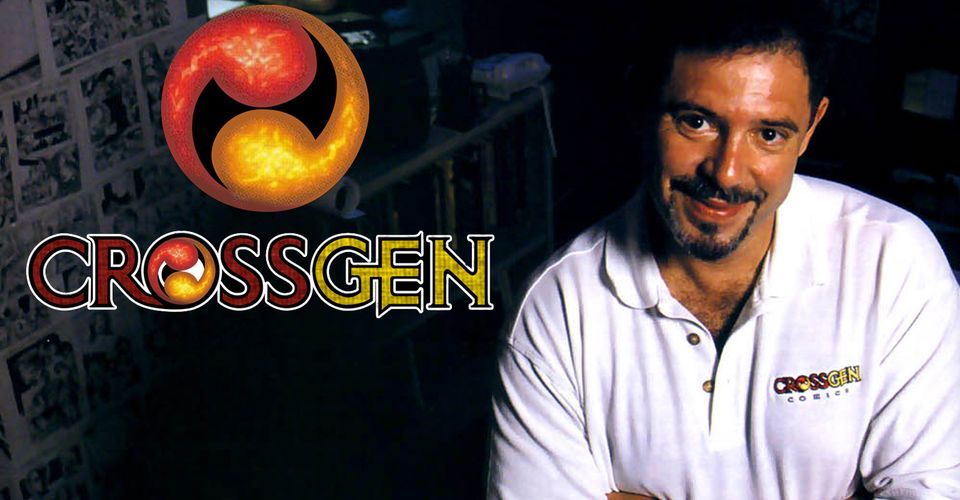
So, about three weeks after that conversation, I get a call from Mark and he says, “Hey, good news – you’re going to get a FedEx package tomorrow. Sign here, notarized here and congratulations you got a charity. ” I said, “Well that’s not what we talked about –you said you were going to have them find out what needed to be done. I was scared to death, but it also sort of felt like destiny calling. So, sure enough, I got the package. I signed here, I notarized there, I put together a provisional board of directors and we were off and running.
Charity Matters: What are your biggest challenges? How do you know who to help?
Jim McLauchlin: The two most common things are somebody putting their own hand up when something happens. I’m three months behind on the rent, I’m gonna get evicted tomorrow. Can you please help me? The other commonality is, we see people being prideful and don’t want to admit that they are in trouble. People don’t want to admit they’ve got problems. So equally frequent to that, we’ll get a call from Joe Blow, who will say hey, you really ought to check in on this dude over there. I think they’re really in a tough spot. Half the time it’s somebody putting their hand up going oh my god, I’m drowning, I need help, and half the time it’s someone saying hey, go take a look at Bob. He’s not drowning yet, but he’s pretty damn close.
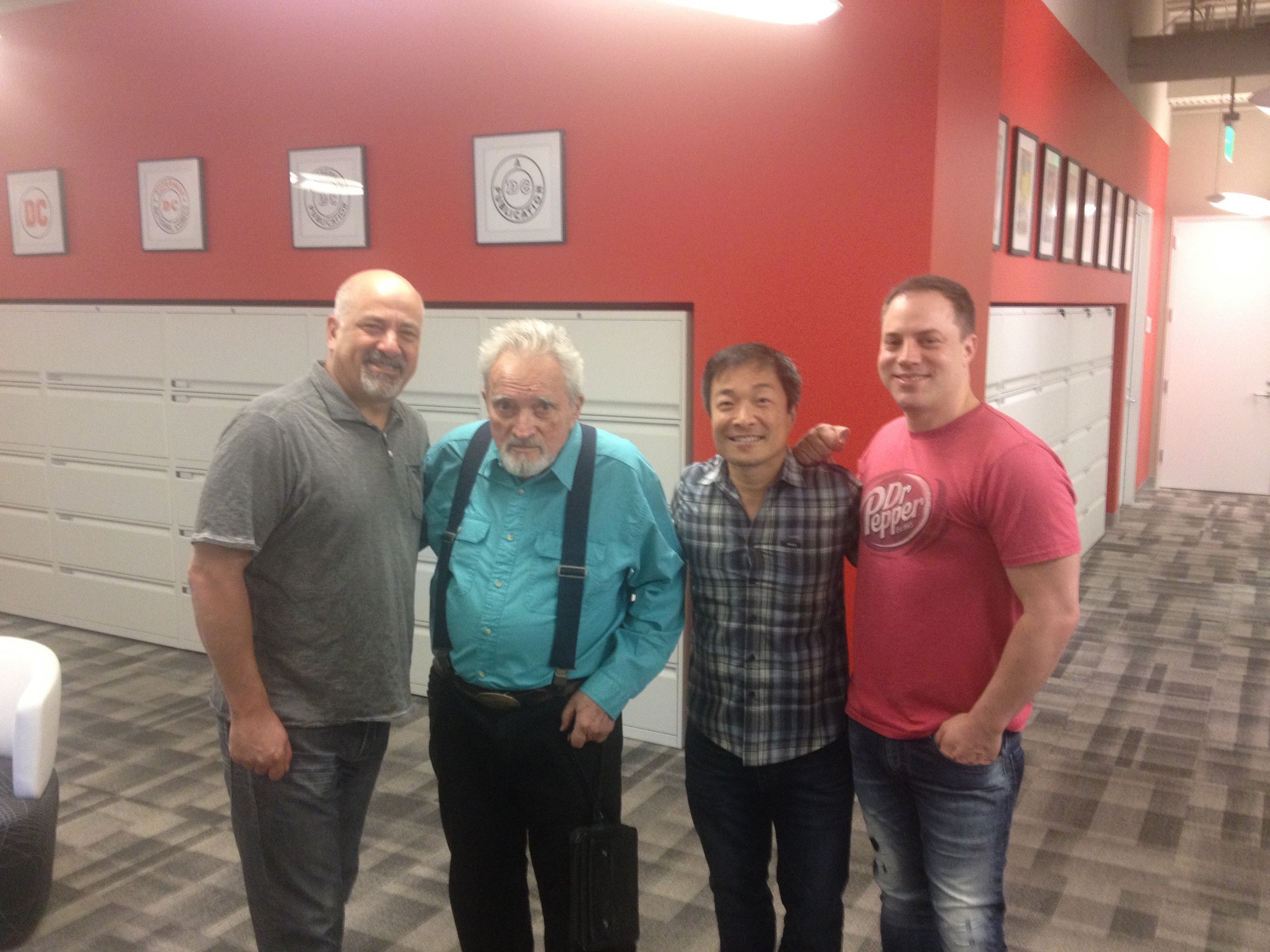
Charity Matters: What fuels you to keep doing this work?
Jim McLauchlin: When the organization started back in 2000, you’ve kind of got your brand spanking new period and it’s difficult to grow. We were barely head above water for the first year or two of the organization. For me personally, it was stressful as hell. I had a full-time job and I was running Hero Initiative, on nights and weekends. I remember at one point, I’d spent 14 or 16 hours on a weekend just trying to catch up on everything. We were still keeping our heads barely above water.
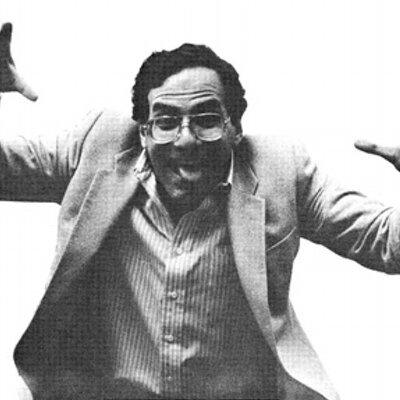
After a year or two of this, and it being really stressful, I remember I was talking to Steve Gerber. Steve is well known in the comics business, and Steve had pulmonary fibrosis and he needed a total lung transplant. Steve lived in Las Vegas and I lived in LA, and the nearest lung transplant center was at UCLA. So Steve had to come in for some tests, I would very often just pick Steve up myself. A year or two later, with everything being so touch and go, with not enough hours in the day and me kind of going crazy, I remember walking the dogs with my wife and I said,” I think I’ve got to end this. This is too much. You know, I can’t do this. It’s like a horrible responsibility that’s too difficult. We’ll give what’s left in the bank to first come first serve. My wife just stopped flat-footed. I turned around and looked at her and she had tears in her eyes. She said, “Well, what about Steve Gerber? “
You wait for the single human example, you know of a Steve Gerber who just needs you. But you know, very often I like to think that if there are 10 chapters in a book and we all wind up at the same place at the end of chapter 10, but at least we could make chapter 7, 8 and 9 a hell of a lot better for everybody.
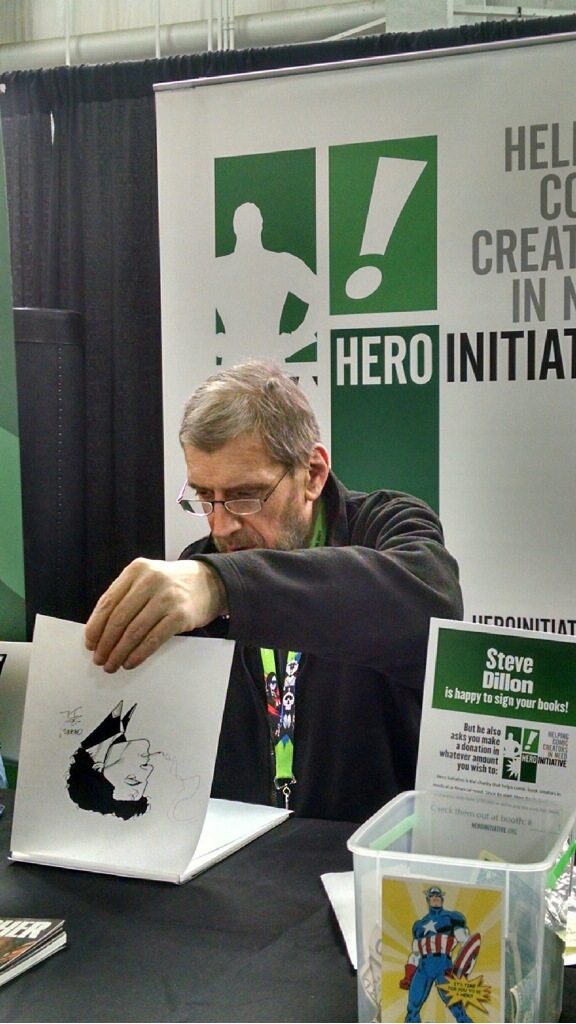
Charity Matters: When do you know you have made a difference?
Jim McLauchlin: I know when I hear people cry. I tell people, I hear grown men cry all the damn time, and it used to freak me out. It used to be highly uncomfortable for me. Somewhere within me, I had some weird feeling like what have I done? You know, how am I making this guy cry? I really realized that what that is, is a dam bursting. I think people have heard “no” for so long – people have heard “no I don’t have any work for you”, “no your style is dated and you won’t sell”, “no I need the rent now”.
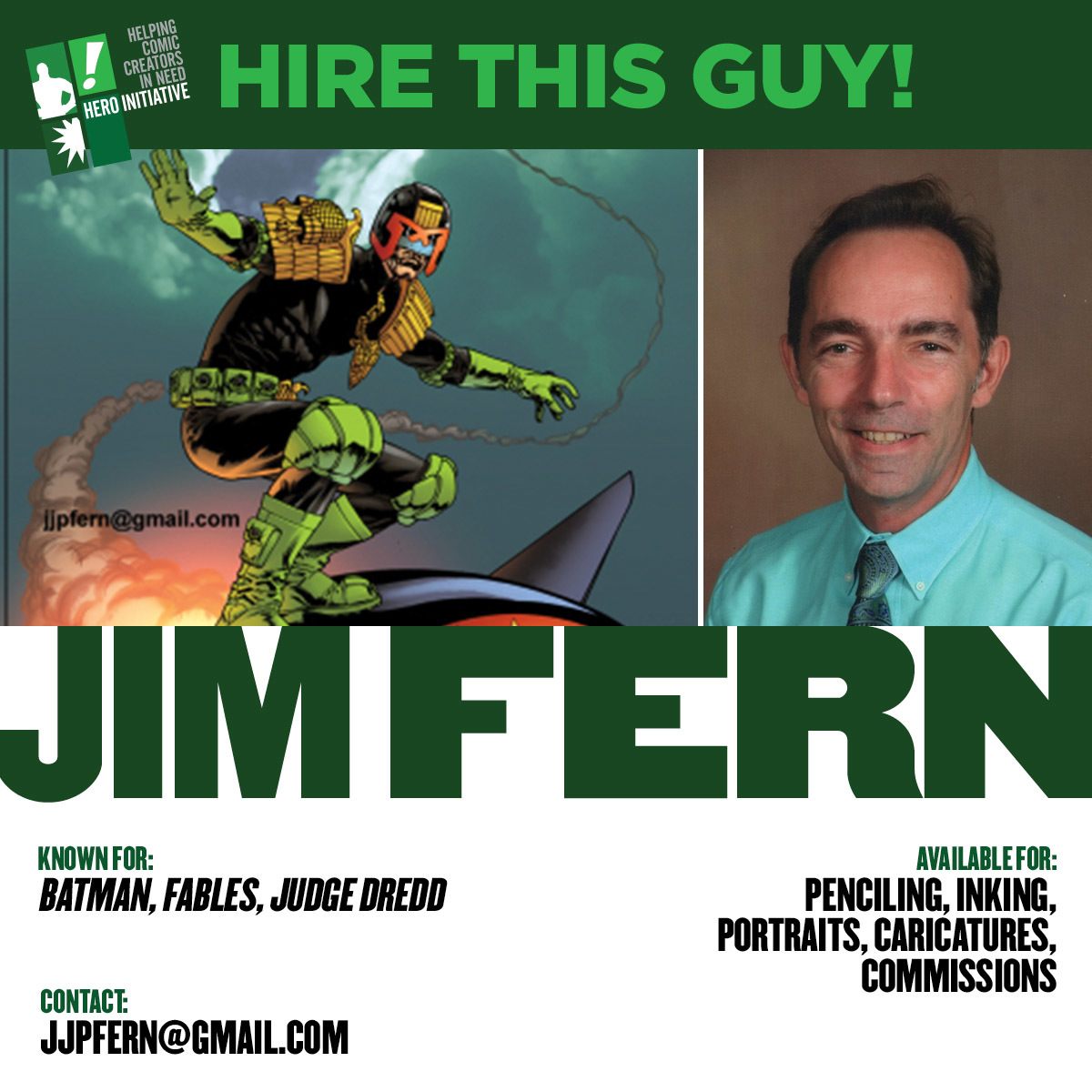
By the time we enter their lives, they hear “yes” for the first time in a long time they have heard – “Yes we’ll take care of your rent”, ” yes, we’re getting in touch with your doctor today”, “yes we will make sure and pay these medical bills so you can get in for your next treatment”, “yes, we actually found somebody with a job for you”. I think they have just heard so many no’s. It’s 10 or 20 or 50 in a row by the time they’ve heard the first yes. It’s an emotional, visceral reaction for them. The body just takes over and a dam bursts. I used to not like it when people did that. Now, it feels good. It took me to come along to the realization that this is not a bad thing. This is a good thing.
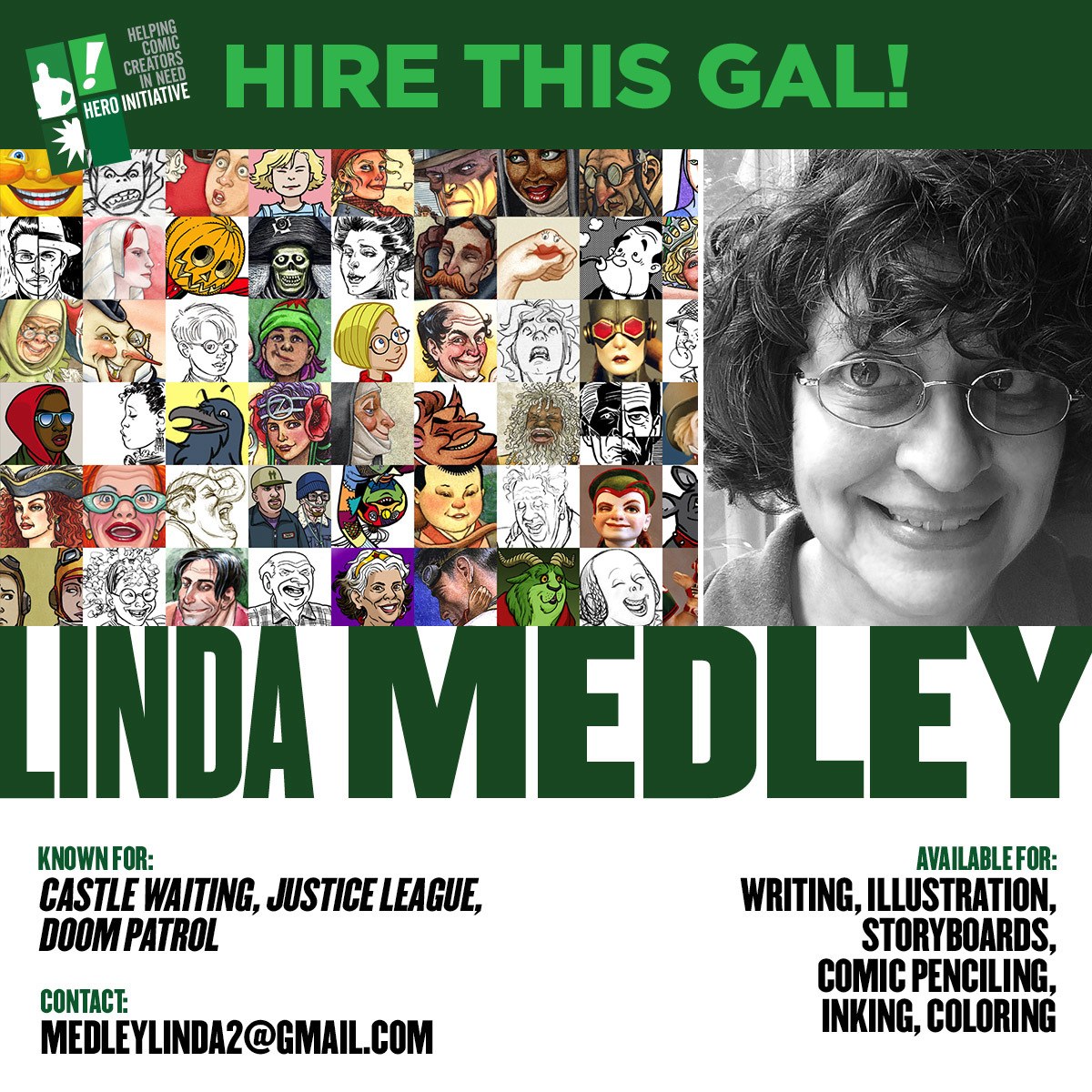
Charity Matters: Tell us what success you have had? What has your impact been?
Jim McLauchlin: I think the impact is people. I think it is the story and I think it’s every individual. Taking this to 40,000 feet, in the view from up top for just a minute, in a broad cultural sense, we’ve probably got a quarter of the country that is one paycheck from the street. Some people literally needed $500 at this instant in time, and their life was okay. It was that 500 bucks that literally just paid for some car repairs, so they can take care of the next thing, and then everything was set out. Some people need $57,000 because there are other situations. I try never to look at it in a monetary sense. I think it is people and their stories. I’ll give you one tiny instance, of one guy, his name is Tom Ziuko. Tom is the guy. He’s a colorist and he’s worked primarily at DC Comics in his career. I always tell people, he’s done everything from Scooby-Doo to Hellblazer. I mean, literally everything in there, he’s even done the superhero stuff.
Tom’s got some chronic blood and circulation problems and when something would happen and all of a sudden he’s got some massive blood clot and he’s in the hospital, he’s on his back for 60 days and literally can’t work. You know, and we are there paying the rent, getting groceries, and taking care of business for him. When he gets through it all, he’s one of the guys who will call and cry. He says I wouldn’t be alive if it wasn’t for you guys. He’s now said that multiple times.
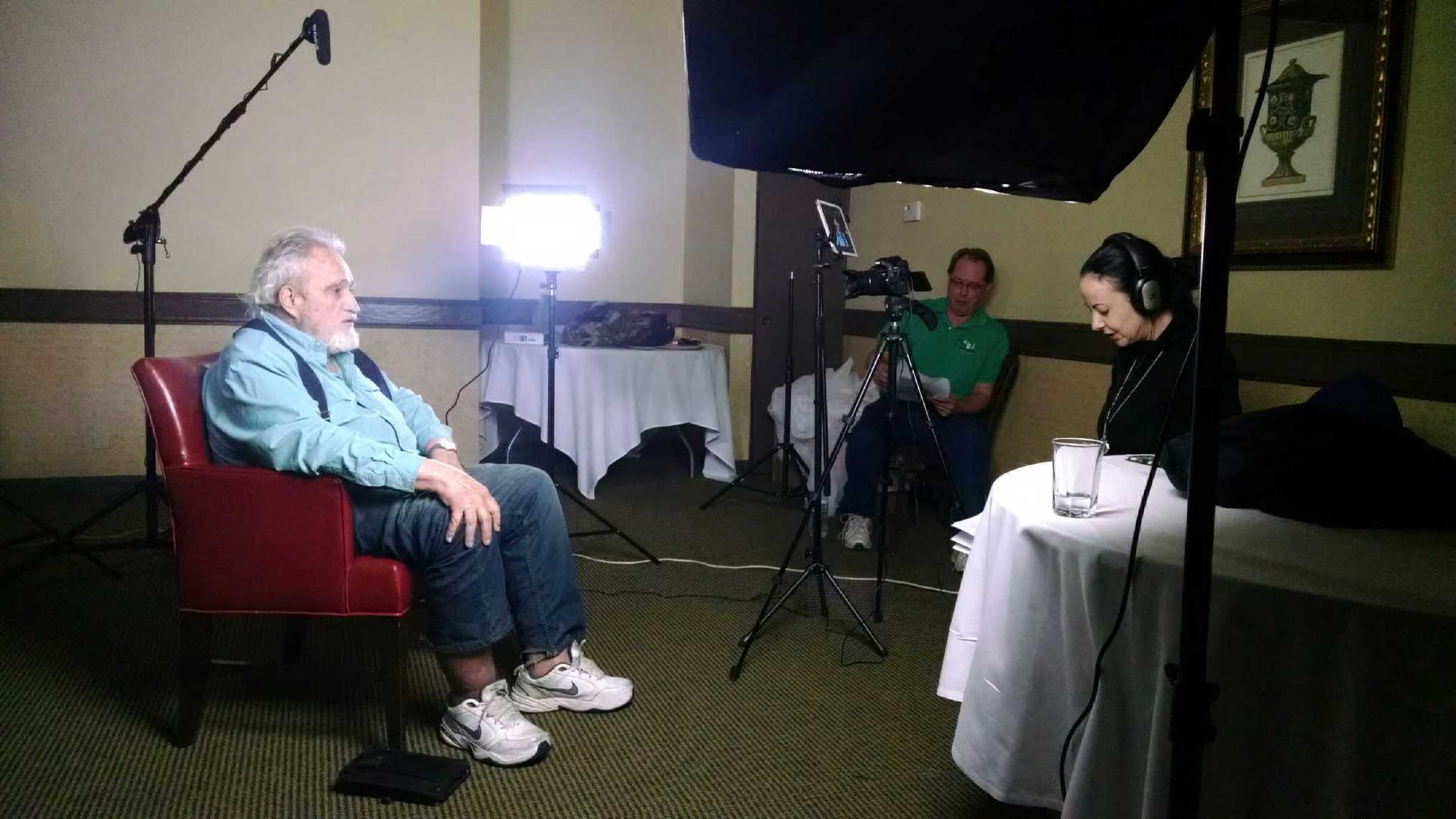
So after a little while, we kind of had the genius idea that well we’ve got enough history with Tom now; that we basically put Tom on a basic income program. Tom needs about a few hundred bucks a month to kind of make ends meet and keep things going on. He’s got a basic income and he doesn’t have to worry nearly as much about chasing the next deadline and chasing the next job. That has an amazingly beneficial mental health aspect. Since we started doing that, his flare-ups which would be some massive right heart blood pumping problem have pretty much gone away.
The story of Tom Ziuko is what I would put on a billboard. Again, I think it’s important in that it’s human impact. I think that we found a solution that not only makes our jobs easier and allows us to be more diffused through the population. The less time we’re spending on Tom, specifically, the more time there is to spend on other people. It’s also best for Tom at the same time. So it’s really a four-quadrant kind of thing.
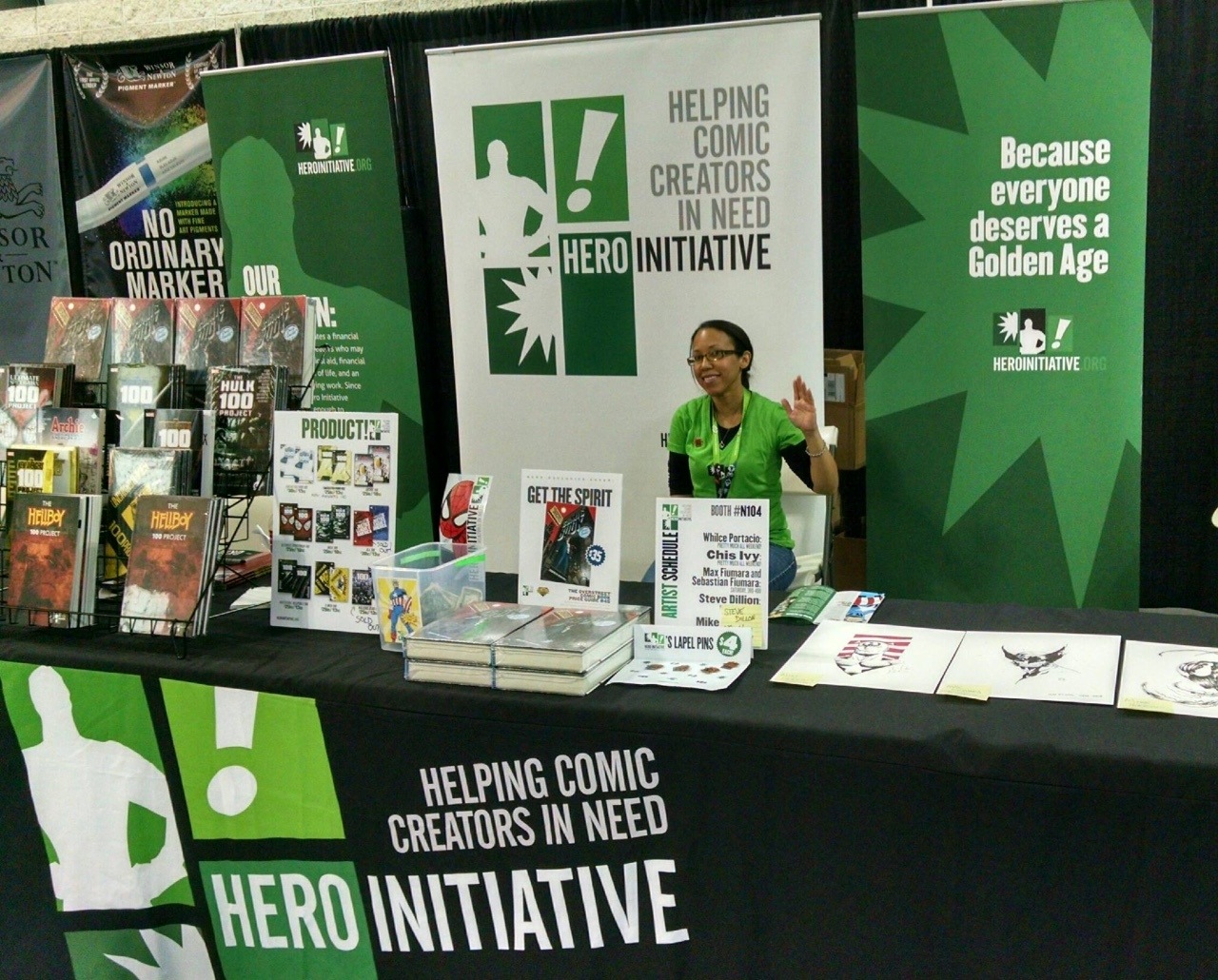
Charity Matters: What life lessons have you learned from this experience?
Jim McLauchlin: One is don’t be afraid of people crying. The other is everything is best practices and everything is active measures. You cannot just sit back and expect the world to come to you– you’ve got to be active, you’ve got to be constantly working towards your goal. I think with best practices, you will get the occasional halo effect that pops out of nowhere. From time to time, we’ll go to the post office box and here’s a check from a foundation I’ve never even heard of, but we’ll have a letter saying, hey we heard about you, we looked into you, we saw what you guys do, we think you’re great and here’s five grand. It’s because of the other active measures that we’ve done. You can’t just hang out a shingle and expect everybody to show up. You need to be working towards your goal. You need to be showing what you do, talking about what you want to do, engage people, get them involved, get them motivated. It’s all forward movement constantly.
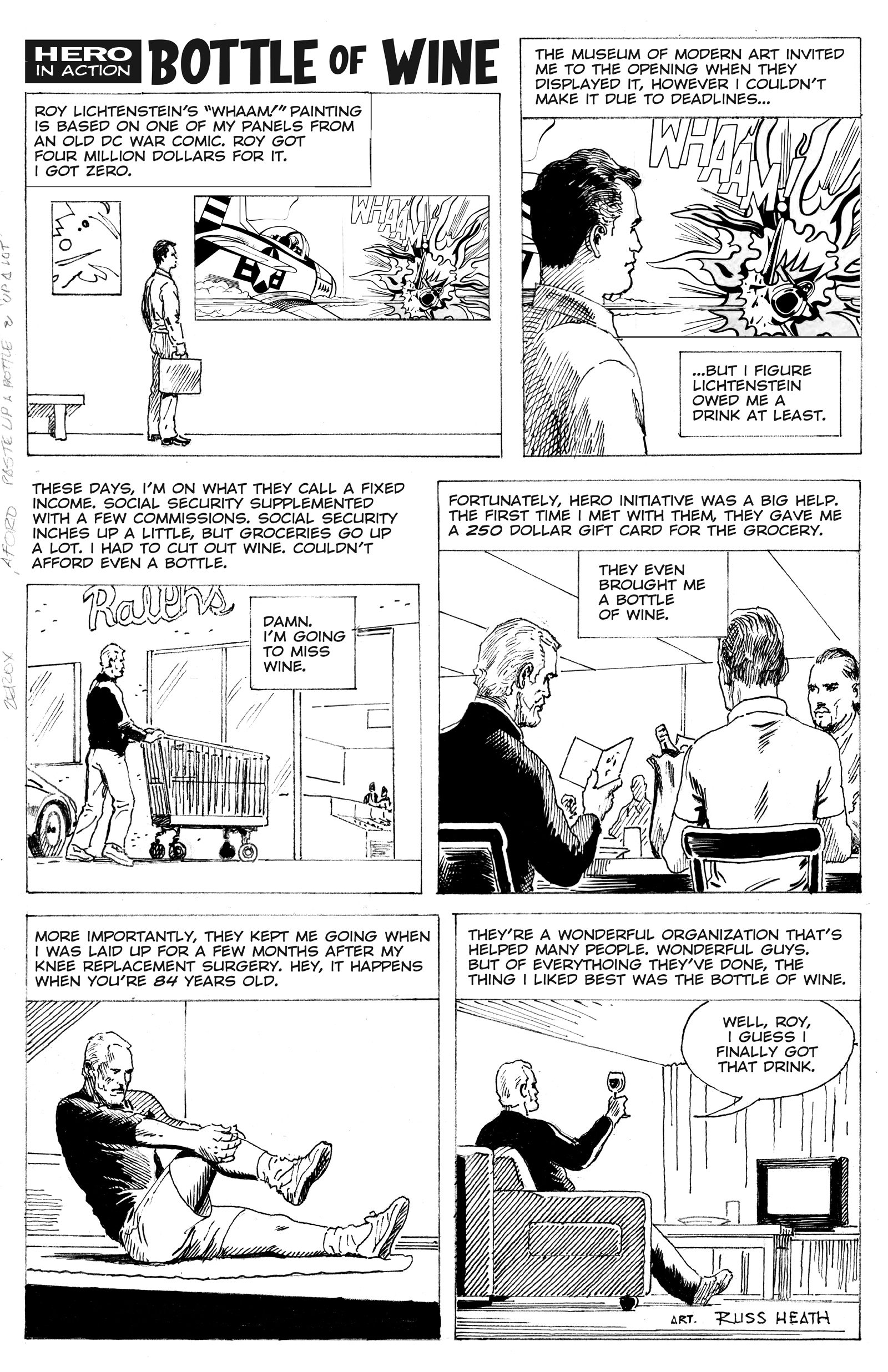
Charity Matters: If you could dream any dream for Hero Initiative, what would that be?
Jim McLauchlin: I would say, it needs to be more than the Hero Initiative. Baseball Assistance Team is there for baseball players, Hero Initiative is there for comic creators, there’s something for plumbers, there’s something for bakers and there’s something for everybody else. The fact that organizations like ours exist is ultimately a damn good thing for the people who need it. In a broad sense, we need to be better as a society. If we address this on a broader level, we will have a more robust, broad set of societal solutions. If we could somehow do things on a broader societal level, that would be better for everybody. I think maybe it’s kind of taking that Tom example and expanding it to society.

Charity Matters: How has this journey changed you?
Jim McLauchlin: I think it’s made me 11 years old again, in very many ways. What I mean by that is, I don’t know if it’s changed so much as it’s reinforced who I am or who I was when I was 11 years old. I’ve got a group of friends, a tight-knit group of friends, five or six guys, we would give each other a kidney tomorrow. We’ve been friends since we’re 11 years old. Where I come from is very much a working-class, Irish Catholic neighborhood. The sort of lessons that you learn, even by the time you’re 11, about helping your neighbor is important. I think that this has really taught me that everything I knew when I was 11 years old is true, and that’s the most important part. It is really at the core of me and probably at the core of you and probably at the core of anybody else.
I think that the lessons you learned and the way you felt and what you knew was important when you were 11 years old, remains critically important and that you should stick to that.
CHARITY MATTERS.
YOUR REFERRAL IS THE GREATEST COMPLIMENT, IF YOU ARE SO MOVED OR INSPIRED, WE WOULD LOVE YOU TO SHARE AND INSPIRE ANOTHER.
Copyright © 2020 Charity Matters. This article may not be reproduced without explicit written permission; if you are not reading this in your newsreader, the site you are viewing is illegally infringing our copyright. We would be grateful if you contact us.

